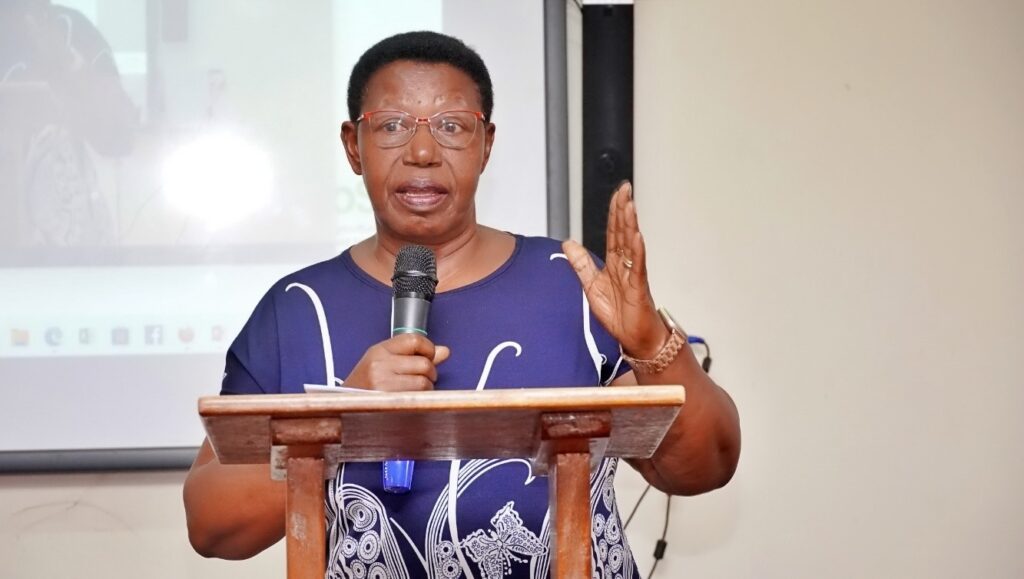By Allen K. Baguma
Every year in March, the world celebrates women. Yes, the world recognises the invaluable contributions of women across the globe.
Women to God
Questions often arise: Is the celebration of International Women’s Day on March 8 still relevant?
Should we continue hyping the woman and girl-child agenda? Doesn’t this create and perpetuate discrimination and gender inequalities?
Are we not hyping the feminist agenda in these celebrations? These are valid questions and in this article, I will try to answer or validate them.
I do not want to dwell on the historical perspective surrounding gender inequality which gives an impression justifying marginalisation, undervaluation, stigmatisation and underdevelopment.
Neither do I want to dwell on the present debates that give sour grains on the agenda of the gender.
I want to talk about a woman in the eyes of the Creator; a woman in the context of the family dynamics and a woman as contributor to society development and growth, and a woman playing a pivotal role in society.
In the divine perspective, as you read in Matthew 28:19-20, God calls for discipleship without discrimination.“ Go, therefore, and make disciples of all the nations, baptizing them in the name of the Father and of the Son and of the Holy Spirit, teaching them to observe all things that I have commanded you; and lo, I am with you always, even to the end of the age.”
While Galatians 3:28 reinforces the idea, proclaiming equality in Christ irrespective of gender, Joel 2:28 emphasizes the outpouring of the spirit on all people- sons and daughters alike. These verses reflect the non-discriminative nature of God to mankind. So, women are as important as men in the eyes on God.

Women and leadership
The Bible provides examples of women taking on the mantle of leadership when need arose. Judges 4:4 introduces us to Deborah, a great prophet, wife and leader of Israel.
Throughout the biblical history, we read about great women leaders like Esther, Phoebe, Sarah, Rebecca, Miriam, Abigail, Rahab, Mary Magdalene, Priscilla, Blessed Virgin Mary (the mother of Jesus), and many more.
Therefore, we cannot use the Bible as a springboard for gender inequalities or stereotypes.
I am driving this conversation to shift to contemporary times, where women and leadership is not merely symbolism talk, but women being proactive, productive, transformative, exemplary, and innovative go-getters.
The tide change makes the sympathy card no longer a winning one.
Rather women in leadership are navigating through different fields as part of the answer to society needs.
Yes, they are breaking barriers, facing challenges, making significant impact, and shaping the world.
Yes, it is in the regular and unconventional, ordinary and extra-ordinary, little and big things women do that is making influence and impact.
Everyone has a role
Leymah Gbowee’s words echo the sentiment that everyone possesses something unique to contribute to the world.
Thus concept of women in leadership embodies the principle of leading self, others, organisations and driving change.
Therefore, the question of celebrating women is not just about cheering those that have chosen to uptake the mantle of leadership opportunities, but rather encourage those who are and those who still need to be pushed into spaces of leadership.
Either way, the push and pull factor in celebrating human dignity, achievement and driving actions towards gender equity is paramount.
The official United Nations theme for International Women’s Day 2024 is ‘Count Her In: Invest in Women. Accelerate Progress.’

This highlights the importance of accelerating the achievement of gender equality and the empowerment by addressing poverty and strengthening institutions while incorporating a gender perspective into financing.
Quoting the timeless wisdom of Dr James Emmanuel Kwegyir-Aggrey a renowned African scholar, “If you educate a woman, you educate a family (nation).”
This holds truth even today, emphasising the profound impact of what empowered women can have on society at large.
In the dynamic landscape of the 21st century, the inherent potential and capability of women to shape the present and future decision-making must be a norm rather than an exception.
Women and leadership, therefore, is about setting pace and precedent, but also inspiring and paving way for a world where both male and female can participate, at the same time nurturing and growing thriving families for the continuation of human civilisation.
It is, therefore, no shame to celebrate women, to celebrate womanhood, to celebrate motherhood, to celebrate progress, and to celebrate women in leadership.
It is both a moral and fundamental duty for every generation to create a world where women are not just celebrated, but become a part of driving force behind positive change and development.
As you read this, I celebrate you and I encourage you to celebrate the women in your lives this year.
The writer is a leadership enthusiast and trainer
info@allenbaguma.com






















